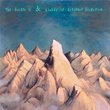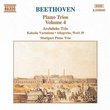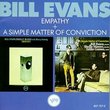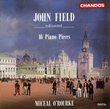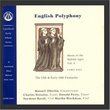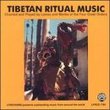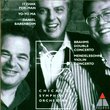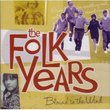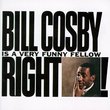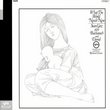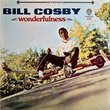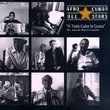| All Artists: George Frideric Handel, Nicholas McGegan, Philharmonia Baroque, Lorraine Hunt, Janet Williams, Patricia Spence, Drew Minter, Jeffrey Thomas, William Parker Title: Handel - Messiah (Complete) (3 CD Set) / Hunt, J. Williams, Spence, Minter, J. Thomas, W. Parker, PBO, McGegan Members Wishing: 1 Total Copies: 0 Label: Harmonia Mundi France Release Date: 12/7/1992 Album Type: Import Genres: Special Interest, Classical Styles: Holiday & Wedding, Opera & Classical Vocal, Historical Periods, Baroque (c.1600-1750) Number of Discs: 3 SwapaCD Credits: 3 UPC: 093046705022 |
Search - George Frideric Handel, Nicholas McGegan, Philharmonia Baroque :: Handel - Messiah (Complete) (3 CD Set) / Hunt, J. Williams, Spence, Minter, J. Thomas, W. Parker, PBO, McGegan
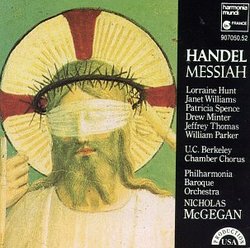 | George Frideric Handel, Nicholas McGegan, Philharmonia Baroque Handel - Messiah (Complete) (3 CD Set) / Hunt, J. Williams, Spence, Minter, J. Thomas, W. Parker, PBO, McGegan Genres: Special Interest, Classical
When it was first issued, this was billed as the "do it yourself" Messiah, since the presence of alternate versions of many of the arias and choruses allowed you to assemble any of the many different versions that Handel c... more » |
Larger Image |
CD DetailsSynopsis
Amazon.com When it was first issued, this was billed as the "do it yourself" Messiah, since the presence of alternate versions of many of the arias and choruses allowed you to assemble any of the many different versions that Handel conducted in his lifetime. That gimmick aside, this performance really doesn't stand up against much of the "original instrument" competition--particularly Trevor Pinnock, The Sixteen, or Harmonia Mundi's own later version with William Christie and Les Arts Florissants--perhaps the best of all. --David Hurwitz Similar CDs
Similarly Requested CDs
|
CD ReviewsScholarly but ultimately uninspiring Michael K. Halloran | 06/26/2000 (3 out of 5 stars) "Nicholas McGegan has conducted some excellent Handel recordings in the past and is something of a specialist in this repertoire. However, his recording of "Messiah" leaves something to be desired. There is a lack of feeling that pervades the entire piece -- everyone does a thoroughly professional job, but it ends up sounding like just that: a JOB. It's really a pity, because McGegan goes further in his scholarship than do other conductors by including nearly all the variants which Handel wrote through the years for different performances of the oratorio. So we get not only the 4/4 version of "Rejoice greatly" but the lilting 12/8 version as well (which I prefer). There are four versions of "But who may abide" and "How beautiful are the feet of them," three of "Thou art gone up on high" and a soprano version of "He was despised." The list goes on.The performance itself, however, simply cannot compete with other recordings. The choir has a light, pleasant sound but is placed too far back, and the sound as recorded is boxy with very little "air" around the voices. All the soloists are capable and unoffensive, but uninspired as well. Only Lorraine Hunt really comes to life singing the alternate soprano version of "He was despised," giving a reading both luminous and heart-breaking.If you are looking for a really fine period-instrument recording, I can recommend three: John Eliot Gardiner's, Trevor Pinnock's (with superb soloists in Arleen Auger and Anne Sofie von Otter) and Paul McCreesh's more recent version with one of the strongest line-ups of soloists I've heard in a long time. Also worth looking into is Richard Westenberg's recording with Musica Sacra, easy to overlook. It contains the 12/8 version of "Rejoice" and the soprano/alto duet version of "How beautiful are the feet" and the following chorus, "Break forth into joy." The soprano soloist is the marvelous Judith Blegen, one of the best. Compared to these four recordings, McGegan's is an also-ran. Buy it for the scholarship and the extra music, but get another version to hear an actual performance of "Messiah."" A straight foward "no-nonsense" period performance. Michael K. Halloran | 04/02/1999 (3 out of 5 stars) "Very polished "no-nonsense" performance in the period style. Some will appreciate the unmannered way in which it is performed others will interpret this as being a bit dull. If you want a "complete" set in terms of it's various versions this is the performance to get. (It is available on THREE cd's which includes variations which can be programmed into your CD player) As a performance it's icy cool . As a recording the sound is very dry lacking in bloom." Points for Completeness Virginia Opera Fan | Falls Church, VA USA | 11/16/2006 (3 out of 5 stars) "I purchased a copy of this shortly after its release for an opportunity to hear the variants included. Having satisfied my curiosity, I've pretty much relegated it to the shelf. It's one of those recordings I respect without much enthusiasm. The much lamented Lorraine Hunt is the standout soloist. William Parker's baritone is well suited to the high lying tessitura of the bass part and his tone is nicely plush - and poignant given that he passed away not long after the recording from effects of a long illness. The other soloists are thoroughly professional. I have never cared much for the sound of the UC Berkeley Chorus in this or the other Handel oratorios McGegan recorded with them. There's nothing wrong with the choral voices as such, but I think glee club every time I hear them. The booklet makes much of the recording's engineering but the results are dry and lifeless. The conducting is pretty good, but I think the final "Amen" is a miscalculation. After the vigor of the penultimate chorus, the slow and soft singing is like stepping into mud. There are better historically informed performances available, but this is a unique opportunity to hear both Handel's original ideas, second thoughts, and response to necessity - like the secco recitatives substituted in Dublin because of singer limitations (for example, Who may abide). I've read elsewhere those those bits were lost to posterity, but that's a question for the musicologists."
|

 Track Listings (20) - Disc #1
Track Listings (20) - Disc #1![Luz y Norte [Germany]](https://nationalbookswap.com/cd//m/14/0314/6150314.jpg)
